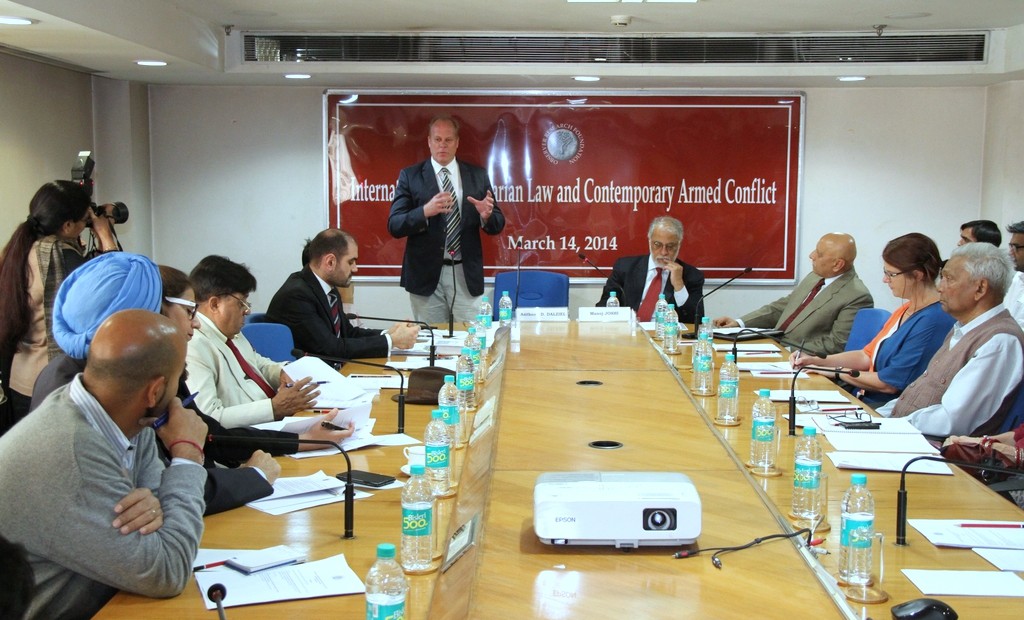The evolution and effects of contemporary armed conflict warrant reconsideration of the understanding and application of International Humanitarian Law (IHL). From the classification of armed conflicts to the use of new technologies, the changing frontline calls for greater dialogue, debate and development of IHL in respect of such realities. With a view to discussing issues relating to IHL and contemporary armed conflict, the Observer Research Foundation (ORF), an independent think tank based in India, recently organised a talk on the subject.
Mr Anthony Dalziel, the ICRC’s head of operations for South Asia, made the opening remarks at the talk, which turned out to be a stimulating session, examining various issues related to an understanding of IHL within the changing paradigm of modern warfare.
Inaugurating the talk, Mr Dalziel said, “In the past 15 years of being in the ICRC and working in different countries worldwide, I have felt, experienced and seen the effects of the evolution of many of these new means and methods of warfare, from something as rudimentary as improvised explosive devices to very sophisticated unmanned aerial vehicles.” Reiterating the increasing need for IHL in modern times, he added, “From the ICRC’s point of view, this body of law continues to be of prime importance to us.”
The discussion, divided in two sessions, was delivered by the ICRC’s Regional Legal Advisor for South Asia and Iran, with insight from the Director of the Indian Law Institute and from the Director of Amity Law School. The first session touched upon the significance of IHL and its related principles in the context of the changing nature of the battlefield. The second session highlighted the various aspects of IHL and the challenges posed by new means and methods of warfare, such as automated weapons, remote-controlled weapons and cyber operations in armed conflict. The ensuing discussion with representatives from Government Ministries and offices, defence Think Tanks, the Diplomatic Corp, International Organisations and civil society generated a lot of interest.
Mr Dalziel, who was in India for the last two weeks, heads the operations of the ICRC in South Asia from the ICRC headquarters in Geneva, Switzerland. Given his experience of having worked in many ICRC operations, including in Pakistan, Sri Lanka, Gaza, Liberia, Chad, Iraq and Sudan, a part of his role is to coordinate different issues of operations in South Asia at the ICRC headquarters. His visit to India was part of the rounds that he does of South Asian countries to remain abreast of the organisational work done at the ground level.
ICRC New Delhi


